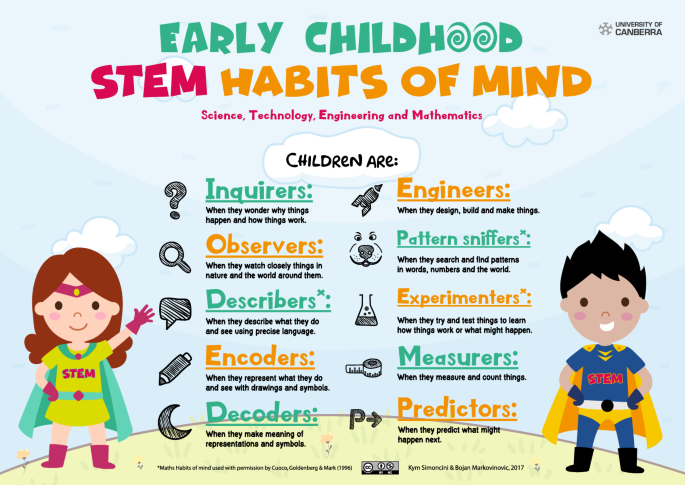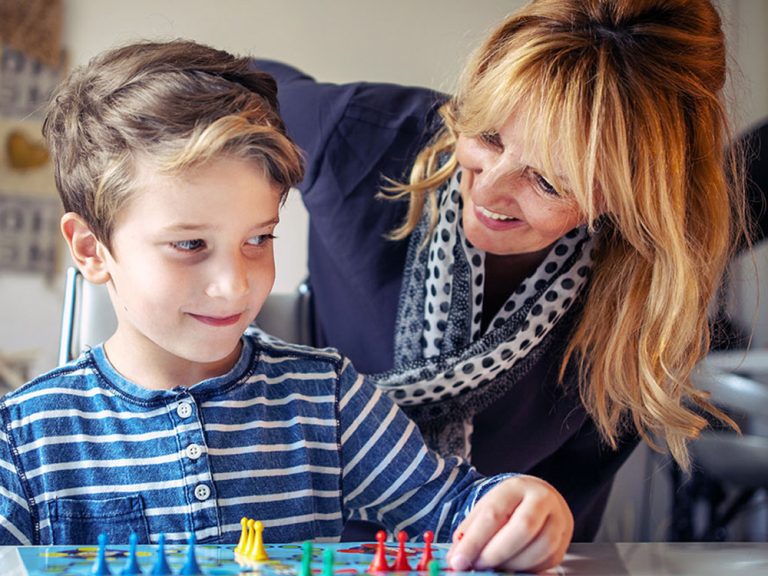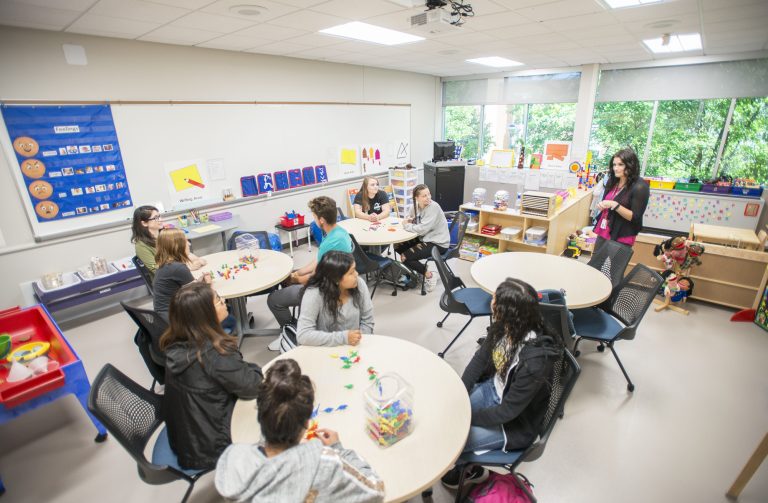Why Play is Crucial for Early Childhood Education: Exploring the Benefits
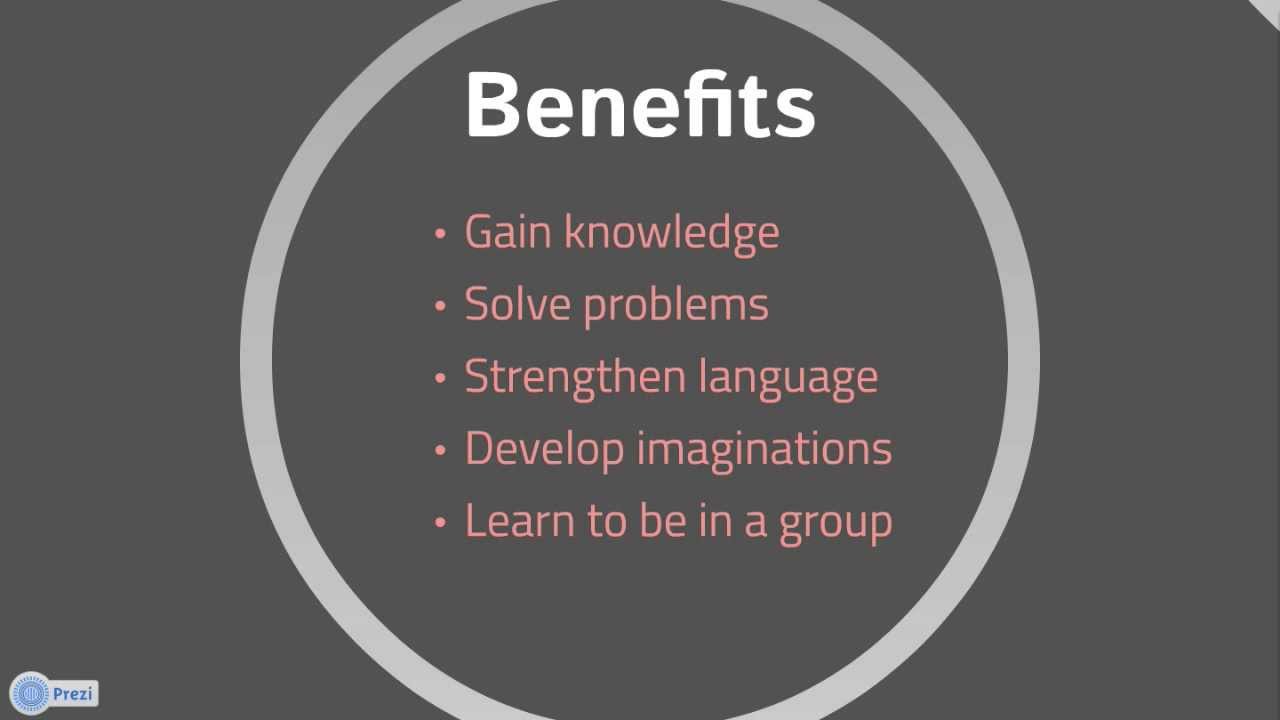
Play is crucial in early childhood education as it fosters cognitive, social, and emotional development. Children learn essential skills through play that aids in their overall growth and learning capabilities.
Engaging in play activities enables children to explore their surroundings, develop problem-solving skills, and enhance their creativity. Additionally, play helps children build communication and social skills by interacting with others in a fun and relaxed setting. By incorporating play into early childhood education, educators can create a dynamic and effective learning environment that promotes holistic development in young learners.
The benefits of play in education extend beyond just having fun; it is a fundamental aspect of a child’s learning journey.
The Importance Of Play In Early Childhood Education
Play is an essential component of early childhood education, providing children with numerous developmental, cognitive, and social benefits. Through play, children engage in activities that foster creativity, imagination, and problem-solving skills, laying the foundation for future learning and development. Understanding the importance of play in early childhood education is crucial for educators, parents, and caregivers to create a nurturing environment that supports children’s holistic growth and development.
Developmental Benefits
Play contributes significantly to children’s physical, emotional, and mental development. It allows them to enhance their gross and fine motor skills, promoting physical coordination and balance. Moreover, play encourages the development of emotional resilience, self-regulation, and empathy, enabling children to understand and manage their emotions effectively.
Cognitive Benefits
Engaging in play activities stimulates children’s cognitive functions, including problem-solving, critical thinking, and creativity. Through play, children explore and experiment, fostering a deeper understanding of cause and effect relationships and enhancing their ability to think abstractly.
Social Benefits
Play facilitates the development of social skills such as cooperation, communication, and conflict resolution. It provides children with opportunities to engage in pretend play, role-playing, and collaborative activities, promoting empathy and positive interaction with peers.
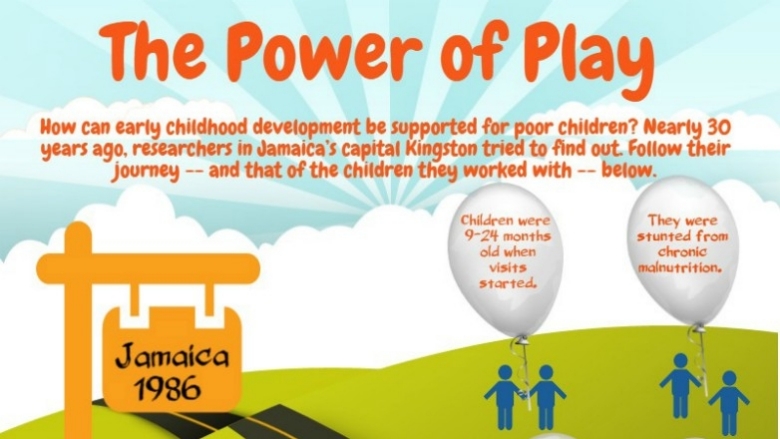
Credit: www.worldbank.org
Types Of Play In Early Childhood Education
Symbolic Play
Symbolic play, also known as pretend play, allows children to use their imagination and creativity to engage in make-believe scenarios. This type of play involves the use of objects and actions to represent something else, such as using a block as a phone or pretending to be a doctor. Symbolic play is vital for developing cognitive and social skills, as it encourages children to think abstractly and understand different roles and perspectives.
Constructive Play
Constructive play involves the manipulation of objects to build and create. This type of play helps children develop their fine motor skills, spatial awareness, and problem-solving abilities. Whether it’s building with blocks, molding clay, or assembling puzzles, constructive play fosters creativity and innovation while promoting hand-eye coordination and logical thinking.
Physical Play
Physical play encompasses activities that engage children in movement and exercise. From running and jumping to climbing and balancing, physical play is crucial for developing gross motor skills and promoting overall physical health. It also allows children to release energy, improve coordination, and build strength, contributing to their overall well-being and confidence.
The Role Of Play In Language Development
Play is a crucial aspect of early childhood education, and it plays a significant role in language development. Through play, children have the opportunity to build their vocabulary, enhance their communication skills, and develop a strong foundation for language acquisition.
Building Vocabulary
Play provides children with the chance to encounter and learn new words in a natural and engaging environment. Whether they are playing with toys, interacting with peers, or engaging in imaginative play, children are constantly exposed to new vocabulary that contributes to the expansion of their word bank.
Enhancing Communication Skills
In play, children are required to express their thoughts and ideas, thereby enhancing their communication skills. Whether it’s negotiating roles in a make-believe scenario or conversing with peers during a game, these interactions encourage the development of effective communication skills in a stress-free setting.
Incorporating Play Into The Curriculum
Play is a vital component of early childhood education, providing numerous benefits for children’s cognitive, emotional, and social development. When incorporating play into the curriculum, educators can create a dynamic learning environment that fosters creativity, problem-solving skills, and social interaction. By integrating play-based activities and striking a balance between play and structured learning, educators can effectively enhance the overall learning experience for young learners.
Integrating Play-based Activities
Integrating play-based activities into the curriculum allows children to learn through exploration and discovery. By incorporating activities such as imaginative play, sensory experiences, and hands-on learning, educators can stimulate children’s curiosity and creativity. These activities provide opportunities for children to develop essential skills such as critical thinking, communication, and collaboration in a fun and engaging manner.
Balancing Play And Structured Learning
Finding the right balance between play and structured learning is crucial in early childhood education. While play encourages creativity and self-expression, structured learning provides a framework for acquiring essential academic concepts. Educators can achieve this balance by integrating play-based activities with intentional learning objectives, ensuring that children have the opportunity to explore, experiment, and inquire while also gaining foundational knowledge and skills.
Benefits Of Play-based Learning
Play-based learning is a vital component of early childhood education, offering numerous benefits that support the overall development of young children. Through engaging in play, children not only have fun but also acquire essential skills that lay the foundation for their future growth and success.
Promoting Creativity
Play encourages children to think outside the box, explore new ideas, and express themselves in imaginative ways. By engaging in creative play activities such as drawing, role-playing, and building with blocks, children can develop their artistic skills and innovative thinking.
Fostering Problem-solving Skills
Through play, children learn to navigate challenges, think critically, and find solutions independently. Whether it’s solving puzzles, building structures, or collaborating with peers in group games, play fosters the development of problem-solving skills that are essential for success in academics and everyday life.
Enhancing Emotional Regulation
Play provides a safe space for children to explore and understand their emotions. By engaging in pretend play scenarios, children can practice managing their feelings, empathy, and social interactions. This helps in enhancing emotional regulation and building healthy relationships with others.
Challenges And Misconceptions About Play In Education
Play in early childhood education is crucial for holistic development, yet misconceptions and challenges persist. Understanding the benefits of play promotes cognitive, social, and emotional growth, laying a strong foundation for lifelong learning. Embracing play as a valuable educational tool enhances creativity, problem-solving skills, and overall well-being.
In recent years, there has been a growing recognition of the importance of play in early childhood education. Play is an essential component of children’s development, helping them to learn and grow in a fun and engaging way. However, despite the numerous benefits of play, there are still many challenges and misconceptions surrounding its use in education. In this blog post, we will explore some of the most common challenges and misconceptions about play in education, and explain why they are misguided.Perceived Lack Of Academic Rigor
One of the most common misconceptions about play in education is that it lacks academic rigor. Many educators believe that play is simply a way for children to have fun, and that it does not contribute to their intellectual development. However, research has shown that play is actually an incredibly effective way for children to learn. Through play, children develop a range of cognitive, social, and emotional skills, including problem-solving, communication, and self-regulation. Play can also help to build a strong foundation for future academic success, as children who engage in play-based learning tend to perform better in school.Time Constraints
Another challenge that educators often face when it comes to incorporating play into their teaching is time constraints. With so many academic standards and curriculum requirements to meet, it can be difficult to find the time to incorporate play-based learning into the classroom. However, it is important to remember that play does not have to be a separate activity from learning. By incorporating play into existing lessons and activities, educators can help to maximize the benefits of play without sacrificing valuable instructional time.Educator Training And Support
Finally, many educators may feel that they lack the training and support necessary to effectively incorporate play into their teaching. Play-based learning requires a different approach to instruction than traditional teaching methods, and educators may need additional training and support to feel comfortable using play in the classroom. However, with the right resources and support, educators can learn to effectively incorporate play into their teaching, helping to create a more engaging and effective learning environment for their students. In conclusion, while there are certainly challenges and misconceptions surrounding the use of play in education, it is clear that play has numerous benefits for children’s development. By understanding and addressing these challenges, educators can help to create a more effective and engaging learning environment for their students.Research Findings On The Effectiveness Of Play-based Education
Research findings on the effectiveness of play-based education have shown significant benefits for early childhood development.
Long-term Educational Outcomes
- Play-based learning enhances problem-solving skills.
- It fosters creativity and imagination.
- Children who engage in play exhibit better communication skills.
Brain Development Studies
- Studies indicate that play stimulates neural connections in the brain.
- It promotes cognitive flexibility and emotional regulation.
- Children who play have improved memory and attention span.
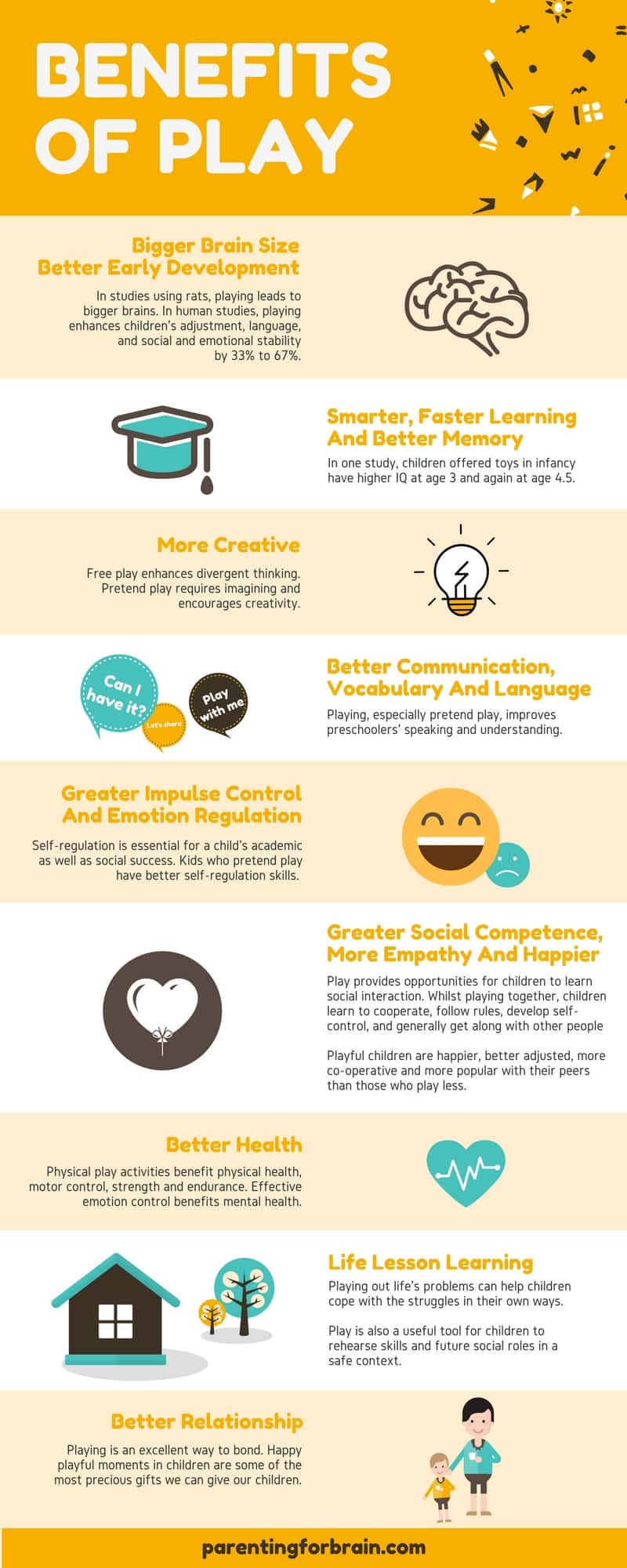
Credit: www.parentingforbrain.com
Implementing Play Strategies At Home
Discover the significance of play in early childhood education through implementing play strategies at home. Engaging in play activities fosters cognitive development, social skills, and creativity in young learners, laying a strong foundation for lifelong learning and growth.
Implementing Play Strategies at Home Creating Playful Learning Environments Creating a playful learning environment at home is essential for promoting early childhood education. By setting up designated play areas, such as a corner with educational toys and books, parents can encourage children to engage in interactive and imaginative play. Additionally, incorporating elements of nature, such as plants and natural light, can further enhance the environment and stimulate creativity. Incorporating Play into Daily Routines Incorporating play into daily routines is vital for the holistic development of children. Integrating educational games and activities during meals or bedtime can make learning fun and seamless. For example, using puzzle mats during snack time or incorporating storytelling into bedtime rituals can foster a love for learning. Furthermore, allowing children to participate in daily tasks, such as cooking or gardening, can instill a sense of responsibility and provide hands-on learning experiences. By creating a playful learning environment at home, parents can foster a love for learning and promote holistic development in their children. Integrating play into daily routines can make learning fun and seamless, nurturing a child’s cognitive, social, and emotional skills.
Credit: twitter.com
Frequently Asked Questions
Why Is Play So Important In Early Childhood Development?
Play is crucial for early childhood development as it promotes social, cognitive, and emotional skills. It enhances creativity, problem-solving, and language development. Through play, children learn to interact, communicate, and understand the world around them, laying the foundation for future learning and development.
What Is The The Importance Of Role Play In Early Childhood Development?
Role play in early childhood development fosters creativity, social skills, and problem-solving abilities, enhancing cognitive growth.
How Does Lack Of Play Affect Child Development?
Lack of play can affect child development in multiple ways, including stunted social skills, decreased creativity, and limited problem-solving abilities. Play helps children develop their imagination, cognitive skills, and emotional regulation. Without play, children may struggle with communication, emotional regulation, and social interactions.
It can also lead to a lack of physical activity and obesity.
What Is Play Theory In Early Childhood Education?
Play theory in early childhood education emphasizes learning through play, promoting creativity, social skills, and problem-solving abilities in children.
Conclusion
Play is essential in early childhood education for fostering holistic development. Through play, children learn important social, emotional, and cognitive skills that form the foundation for future learning. It encourages creativity, problem-solving, and critical thinking, while also promoting physical activity and overall well-being.
Incorporating play into educational settings is crucial for nurturing well-rounded and thriving individuals.
Lorem Ipsum is simply dummy text of the printing and typesetting industry. Lorem Ipsum has been the industry’s standard dummy text ever since the 1500s, when an unknown printer took a galley of type and scrambled it to make a type specimen book.

